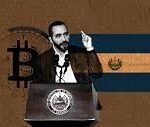Why El Salvador is Winning with Bitcoin

After the Salvadoran Congress passed the #BitcoinLaw in June of 2021 by a supermajority, the country became a phenomenon worldwide. Yes, in part because it had adopted the #cryptocurrency as a legal tender, making it the first country in the world to do so, but most importantly, because it dared go against the establishment: the traditional monetary system and its banking industry.
The news attracted companies and Bitcoiners alike. In fact, almost a year since the law was approved, mind you, it really took effect until September 7th, I share a few highlights:
- #ElSalvador ‘s Gross Domestic Product (GDP) grew by 10.3% in 2021
- The country experienced a 30% increase in tourism: there were several events that took place there including LABitConf & Adopting Bitcoin, two conferences that allured thousands of participants to the English and Spanish sessions. El Zonte, where everything started, captivated visitors who wanted to experience how to buy shaved ice or a coke from a shack on the beach using Bitcoin; and lastly, the diaspora, Salvadorans living abroad, especially in the United States, whose visits increased from the previous year.
- Remittances: Salvadorans abroad sent about 96.3 millions to their relatives in the country. The government’s Chivo Wallet doesn’t charge the transfer fee if you send Bitcoin from Chivo-to-Chivo. P2P payments and money transfer companies such as MoneyGram and Western Union were projected to suffer a decrease in revenue because of the new free transfer fee modality. While BTC remittances accounted for only 1.9% of all the funds sent by the diaspora ($5.072 billion in remittances), this is just the beginning. This is 1.9% that had not been sent in Bitcoin the prior year.
- FUSADES, The Salvadoran Foundation for Economic & Social Development, a right-wing think tank, released data showing that 2021 had become the year with the highest private investment in 61 years.
- Data showed an increase in use of Lightning Network (LN), the incredible second layer to BTC’s blockchain that helps clean the path to make micropayments in a fast and efficient manner. Its advantage: speed & cost. The LN significantly reduces transfer fees.
True. There’s still a lot to be done. While El Salvador’s population is only 6.5 million people, we need to keep educating our population. Not everyone is transacting with Bitcoin yet, but we are ahead compared to a year ago. Academia, the Private Sector & the Salvadoran Government (the Triple Helix) are working together to educate people. Places like “La Casa del Bitcoin,” an initiative by Paxful, offers FREE classes on all topics ranging from Lightning Network to “How to Download a Wallet” to “Trading” to “Creating your Own NFT.” Similarly, other companies such as My First Bitcoin are also traveling to remote areas across the country to educate Salvadorans.
Yes, we still have a long way. Seventy percent of the population are unbanked, but for a tiny country like El Salvador, known for a cruel 12-year civil war, gangs and huge economic disparity, Bitcoin is helping it win.
* Resources: El Salvador’s Central Bank, Strike, FUSADES.
